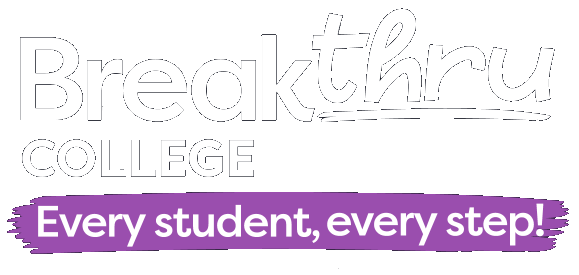
An In-depth Guide to Building a Career in NDIS Support Coordination
A NDIS Support Coordinator is a vital role within the National Disability Insurance Scheme (NDIS) in Australia. These professionals assist people with disability in understanding, navigating, and implementing their NDIS plans. They act as facilitators, bridging the gap between participants, the National Disability Insurance Agency (NDIA) and the range of services, resources, and supports available to them.
The NDIS framework can be complex and overwhelming for participants, particularly for those who are new to the system or have limited experience with service management. Support coordinators help participants make sense of their plans, empowering them to make informed decisions about the supports they access.
NDIS support coordinators work collaboratively with participants to:
By offering this guidance, support coordinators play an essential role in enabling ipeople with disability to lead fulfilling, independent lives.
The role of a support coordinator is multifaceted, requiring a combination of technical knowledge, problem-solving skills, and emotional intelligence. Unlike direct support workers who focus on providing hands-on care, support coordinators have a stronger focus on the administrative and strategic aspects of a participant’s journey through the NDIS.
1. Plan Implementation
Support coordinators translate the details of an NDIS plan into actionable steps. For example, if a participant’s plan includes funding for physiotherapy, the support coordinator identifies suitable providers, facilitates initial consultations, and ensures the service aligns with the participant’s goals.
2. Building Capacity
Capacity-building is a core element of support coordination. By teaching participants how to manage their plans, budget their funding, and communicate with providers, support coordinators foster independence.
3. Problem-Solving and Advocacy
Participants often encounter barriers, such as service availability or accessibility issues. Support coordinators step in to address these challenges, advocating on behalf of participants when necessary.
4. Holistic Support
Beyond connecting participants with formal services, support coordinators also consider informal and community supports that may enhance the participant’s overall wellbeing.
Support coordinators undertake a range of responsibilities designed to ensure the effective and efficient use of NDIS plans. These responsibilities include:
Every NDIS plan is unique, outlining specific goals, funding categories, and approved supports. A support coordinator must thoroughly understand the plan to ensure that services align with their participant’s goals.
Once suitable providers are identified, support coordinators will often assist in creating service agreements between the participant and their new service provider. These agreements outline the terms of service delivery, including costs, frequency, and expectations.
NDIS plans are budgeted across categories such as Core Supports, Capital Supports, and Capacity-Building Supports. Support coordinators work with their participant and/or plan manager to monitor their spending, ensuring funds are used appropriately and remain available throughout the plan’s duration.
In emergencies, such as the sudden loss of a primary caregiver or a service disruption, support coordinators play a critical role in managing this type of crisis. They help participants access alternative services or adjust their plans to accommodate new and often urgent changes to their circumstances.
Accurate record-keeping is essential. Support coordinators prepare progress reports for the NDIS, detailing how the plan is being utilised and any challenges faced, including if more funding is required in certain areas due to the changing nature of their participant’s disability.
The introduction of the NDIS marked a significant shift in how disability services are delivered in Australia. Support coordinators are essential to this framework, ensuring participants can navigate the system with confidence.
Service coordination is the backbone of support coordination. Participants often have diverse needs, requiring multiple services such as housing assistance, therapy, employment support, and personal care. A support coordinator ensures that these services work seamlessly together, avoiding duplication and addressing any gaps.
For example, consider a participant with mobility challenges who requires assistive technology, home modifications, and physiotherapy. A support coordinator:
Life is unpredictable, and participants may encounter sudden challenges, such as:
In these scenarios, a support coordinator’s quick thinking and problem-solving skills are invaluable. They ensure that disruptions are minimised, providing stability and reassurance to participants during uncertain times.
Although there is no single pathway to becoming a support coordinator, relevant education is highly beneficial. Fields of study that align with support coordination include:
| Field of Study | Relevant Qualification Examples |
|---|---|
| Social Work | Bachelor’s Degree or Diploma in Social Work |
| Disability Studies | Certificate III/IV in Disability Support |
| Allied Health | Degrees in Occupational Therapy, Physiotherapy, etc. Note: Allied Health qualifications may also allow you to deliver Specialist Support Coordination, which is a higher level of support requiring more intimate knowledge of complex disabilities and appropriate therapies. |
| Community Services | Diploma or Advanced Diploma in Community Services |
Support coordinators require a unique blend of skills and personal attributes, including:
Formal training is an excellent way to build skills and stand out to employers. Key certifications include:
| Certification/Course | Purpose |
|---|---|
| NDIS Worker Orientation Module | Introduction to NDIS policies and ethical guidelines. |
| Certificate III in Individual Support | Strong understanding of disability services. |
| Mental Health First Aid | Skills to assist participants in crisis situations. |
| Certificate IV in Mental Health | Higher level skills to assist people with disability, especially those with psychological conditions. |
Additionally, training in trauma-informed care, conflict resolution, and cultural competence can enhance a support coordinator’s effectiveness.
Many organisations offer on-the-job training for aspiring support coordinators. Shadowing experienced professionals and participating in mentorship programs provides valuable hands-on experience and insights into the role.
In many cases, you may also have the opportunity to undertake a Traineeship and work towards a nationally recognised qualification while working as a Support Coordinator/Disability Support Worker
NDIS certification is often mandatory for support coordinators. This includes:
Support coordination offers diverse opportunities for career progression.
This role involves supporting participants with complex or high-risk needs. Specialists require additional training (such as a Bachelors Degree) and experience in areas such as mental health or occupational therapy.
Some support coordinators transition into plan management roles, focusing on financial and administrative aspects of NDIS plans.
Experienced support coordinators may take on leadership roles, managing teams or influencing policy within the disability sector.
With the right qualifications and experience, support coordinators can establish their own businesses, providing tailored services to NDIS participants.
Earnings for Support Coordinators can vary across the industry and depend on a range of factors, such as the provider you work for, the region you live in and your qualifications/experience.
According to Jobs & Skills Australia, Support Coordinators earn a median wage of $1,564 per week ($81,000 per year). These earnings are sometimes bolstered by other organisational benefits such as salary packaging, which is a common employee incentive offered by non-profit organisations.
Becoming a support coordinator is both challenging and fulfilling. It requires a unique mix of skills, education, and compassion. By bridging the gap between NDIS participants and essential services, support coordinators play a transformative role in empowering people with disability to achieve their goals and lead meaningful lives.
If you’re considering this career path, start by gaining relevant qualifications, building key skills, and exploring opportunities for hands-on training. The journey may be demanding, but the positive impact you’ll have on participants’ lives makes it a deeply rewarding profession.

